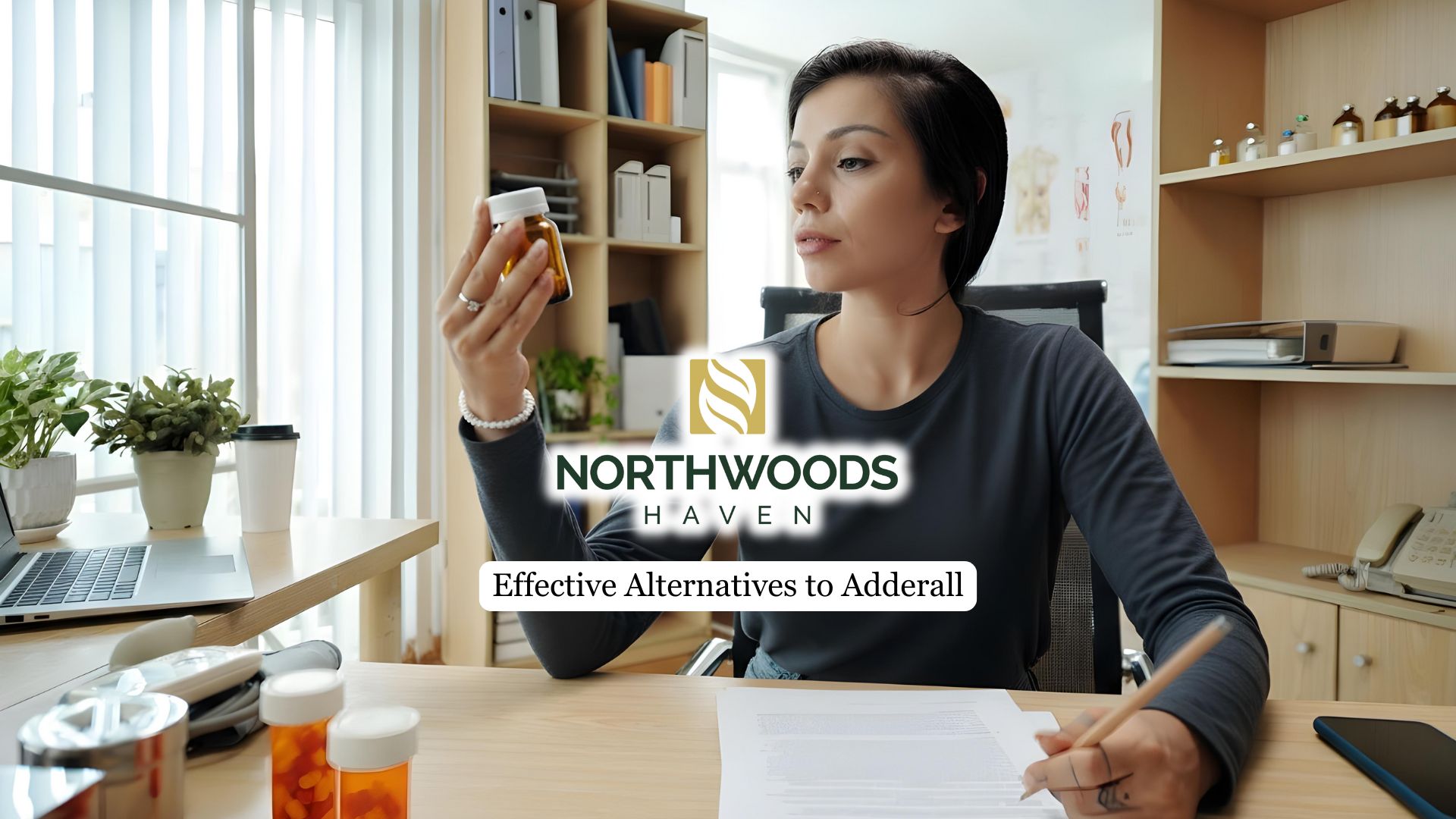Adderall is commonly prescribed to manage attention-deficit hyperactivity disorder (ADHD) and certain sleep disorders, but it is not the only option available. For individuals seeking different treatment paths due to side effects, misuse concerns, or personal preference, there are effective alternatives worth exploring.
This article outlines both medical and non-medical alternatives to Adderall, explaining how they work, their potential benefits, and how they fit into a comprehensive approach to managing focus, attention, and impulse control.
Prescription Alternatives to Adderall
Methylphenidate-based medications, such as Ritalin, Concerta, and Focalin, stimulate the central nervous system in a slightly different way and can provide similar benefits for focus and attention. These medications may cause fewer side effects for some individuals, and doctors often adjust doses to match a patient’s specific needs.
Non-stimulant options like atomoxetine (Strattera) are also available. These medications do not carry the same risk of misuse as stimulants and may be more appropriate for individuals with a history of substance use disorder.
Atomoxetine works gradually and can take several weeks to show noticeable improvements. Other medications, such as guanfacine (Intuniv) and clonidine (Kapvay), are sometimes prescribed to address hyperactivity, impulsivity, and sleep-related difficulties that can accompany ADHD. Although they present a lower risk for misuse, these alternatives are often managed under medical supervision. For individuals who have developed problems with prescription drug dependence, only professional treatment for stimulant addiction can address both the medical and behavioral aspects of recovery.
Non-Stimulant Medications and Their Benefits
Non-stimulant medications are a critical category for those who want to avoid the risks of stimulant dependency.
Atomoxetine increases norepinephrine levels in the brain, which improves attention, reduces restlessness, and promotes emotional regulation. Guanfacine and clonidine, originally designed to treat high blood pressure, have been adapted for ADHD care. They calm overactive neural pathways, helping to reduce impulsivity and aggression while improving focus.
While these medications take longer to work compared to stimulants, they often provide steady, consistent relief without peaks and crashes. They may also reduce issues such as insomnia or appetite loss that are sometimes associated with stimulants. For individuals with co-occurring disorders, non-stimulants can be particularly beneficial since they may promote calmness rather than overstimulation.
Natural and Complementary Therapies
In addition to non-stimulant medications, many individuals look toward natural and complementary therapies to support focus, emotional regulation, and overall brain health. Omega-3 fatty acids, commonly found in fish oil, have been linked to improved cognitive function and modest reductions in ADHD symptoms. Research suggests they may help stabilize neurotransmitter activity and support attention, particularly when combined with a balanced, nutrient-rich diet.

Herbal options such as ginkgo biloba and ginseng have been studied for their potential to enhance memory, alertness, and concentration, though findings remain mixed and more rigorous studies are needed. Other nutritional supports, including magnesium, zinc, and certain amino acids, may influence brain chemistry and promote steadier energy and mood regulation.
While these natural approaches may provide benefits for some, their effectiveness varies widely from person to person. They should always be integrated under professional supervision to avoid possible interactions with prescribed medications.
Lifestyle-Based Alternatives
Lifestyle changes can play a powerful role in symptom management, particularly when integrated with medical care. Regular physical activity, such as running, swimming, or even daily walks, boosts dopamine and serotonin levels naturally, supporting concentration and mood stability. Exercise also reduces stress, which can worsen ADHD symptoms.
Nutrition is another cornerstone of brain health. Diets rich in protein, fresh vegetables, and whole grains provide steady energy and essential nutrients. Limiting processed sugar and caffeine can help reduce hyperactivity and energy crashes. Hydration is equally important, as even mild dehydration can affect attention span.
Behavioral and Therapeutic Approaches
Behavioral therapy provides structured, evidence-based strategies to help individuals manage symptoms without relying exclusively on medication. Cognitive-behavioral therapy (CBT) helps people identify unhelpful thought patterns, build coping mechanisms, and improve time management skills. This approach not only reduces impulsive behaviors but also helps individuals develop healthier habits for long-term stability.
ADHD coaching is another effective option, offering practical support for organization, scheduling, and goal achievement. Coaches often work closely with clients to break tasks into manageable steps, reduce procrastination, and maintain accountability. For many, this hands-on guidance complements medical treatment and strengthens self-confidence, especially during recovery from adderall addiction.
Final Thoughts from Northwoods Haven Recovery
Exploring alternatives to Adderall can open new paths for managing ADHD while also reducing the risks associated with addiction. Prescription substitutes, non-stimulant medications, therapeutic approaches, and lifestyle adjustments all provide viable solutions that support focus and emotional regulation without relying solely on stimulants.
At Northwoods Haven Recovery, we understand the complexities of stimulant misuse. Our team provides evidence-based addiction treatment in Minneapolis, MN, focusing on helping individuals who are struggling with stimulant dependency. Combining medical oversight with behavioral therapies, we help clients create sustainable pathways to long-term wellness.



